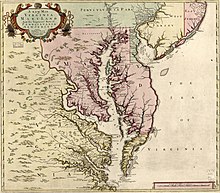
Back Proprietární kolonie Czech Proprietary colony French 領主植民地 Japanese Colônia proprietária Portuguese Проприетарная колония Russian தனியுடைமை குடியேற்றம் Tamil Thuộc địa độc quyền Vietnamese

Proprietary colonies were a type of colony in English America which existed during the early modern period. In English overseas possessions established from the 17th century onwards, all land in the colonies belonged to the Crown, which held ultimate authority over their management. All English colonies were divided by the Crown via royal charters into one of three types of colony; proprietary colonies, charter colonies and Crown colonies. Under the proprietary system, individuals or companies (often joint-stock companies), known as proprietors, were granted commercial charters by the Crown to establish overseas colonies. These proprietors were thus granted the authority to select the governors and other officials in the colony.
This type of indirect rule eventually fell out of favour in the English colonial empire due to a variety of reasons, including the gradual sociopolitical stabilisation of England's American colonies, the easing of bureaucratic difficulties in managing the colonies and increasing economic or administrative difficulties faced by proprietors. Successive English sovereigns sought to solidify their power and authority throughout the empire, and gradually converted proprietary colonies to Crown colonies, which were administered by officials directly appointed by the Crown. By the 18th century, most former proprietary colonies had been converted into Crown colonies.